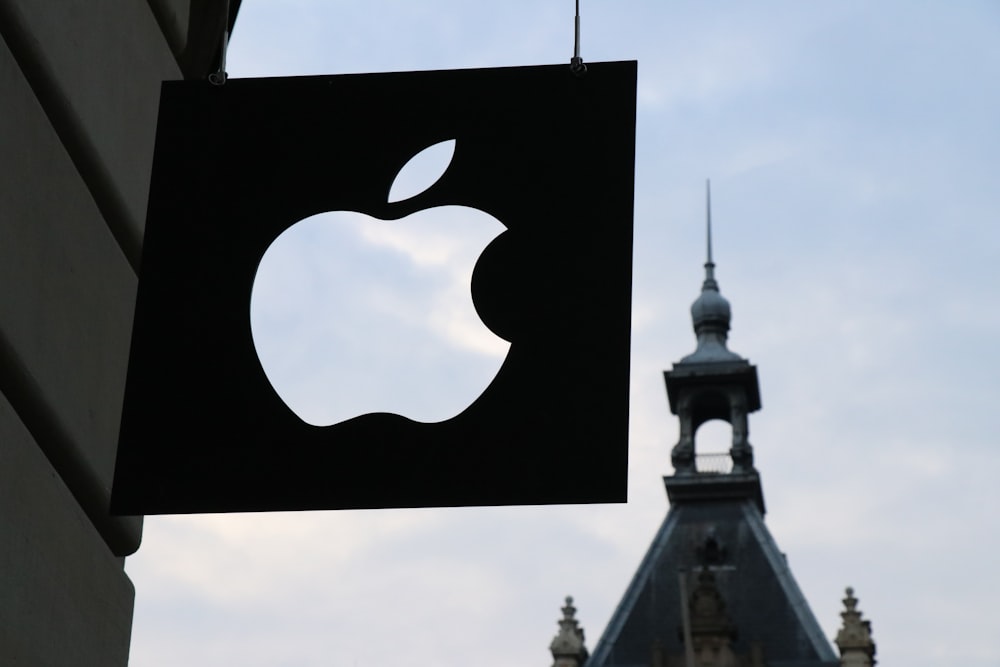Why Apple Has Resisted The Tech Stock Sell-Off In November
Image Source: Unsplash
Apple (AAPL) shares have held up noticeably better than other major technology stocks in November, even as a broad rotation out of the sector pressures market leaders.
While most of the Magnificent Seven have faced sharp declines, Apple has defied the sell-off so far.
The iPhone maker has gained nearly 3% since November compared to compared to Meta, Amazon, Nvidia, and Tesla who have declined between 7% and 12% in the same time frame.
Several factors are helping the iPhone maker withstand the downturn, including resilient China demand, relatively less investment in AI, strategic shifts in its App Store model, strong momentum in its hardware portfolio and ongoing growth within services.
China iPhone strength supports investor confidence
One of the clearest forces insulating Apple from the ongoing tech sell-off is robust iPhone 17 demand in China.
According to Counterpoint Research data, iPhone sales in the country jumped 22% in the first month following the product’s launch.
Analysts attribute this rebound to a well-timed upgrade cycle among customers who purchased devices during the pandemic years.
Counterpoint analyst Ivan Lam noted that Apple “delivered a new device that brings great value,” supporting demand beyond the typical shopping season.
With the Chinese smartphone market remaining highly competitive, this performance has given investors confidence that Apple can retain its premium positioning even as rivals step up pressure.
Apple further improved its standing in China this week by cutting App Store fees for certain developers from 30% to 15%, including those making mini-apps, which are an essential ecosystem within Tencent’s WeChat platform.
The shift opens a new revenue stream from in-app mini-games and strengthens Apple’s ties to China’s dominant mobile platform at a time when regulatory and competitive dynamics remain fluid.
A balanced AI strategy shields Apple from volatility
Another reason Apple has avoided the worst of the sell-off is its comparatively measured approach to artificial intelligence.
Unlike peers whose stock prices have come under pressure due to concerns over heavy AI spending, Apple’s more conservative AI investment cycle has afforded it insulation.
Apple Intelligence, which is increasingly integrated across iPhone, Mac and iPad devices, is contributing to growing device adoption without the large-scale capex burdens seen at competitors.
This positions Apple as a beneficiary of AI-driven product upgrades without exposing it to the volatility tied to AI infrastructure spending.
This strategy is paying off: Apple shares have climbed 17% since the iPhone 17 launch in September.
Early indicators show the iPhone 17 series outsold the prior generation by 14% in its first 10 days across China and the United States.
Hardware refreshes and expanding services strengthen outlook
Apple’s November resilience is also underpinned by broader strength across its product and services segments.
The company’s updated Mac and iPad lineup—featuring the new M5 chip—delivers significant AI performance improvements.
The new iPad Pro is up to 3.5 times faster than its predecessor and 5.6 times faster than the M1 version, while the 14-inch MacBook Pro offers up to six times the performance of earlier models.
Although Mac faces tough year-over-year comparisons in early fiscal 2026, both Mac and iPad posted solid sales growth in fiscal 2025, rising 12.4% and 5% respectively.
Meanwhile, Apple’s high-margin Services business continues to expand.
Apple Arcade now features more than 200 games, and Apple TV+ is picking up momentum, earning a record 81 Emmy nominations and 22 wins at the 77th Primetime Emmy Awards.
These achievements reinforce Apple’s strategy of building recurring revenue streams tied to its growing installed base.
A controlled risk profile in a turbulent market
As technology stocks face mounting pressure from valuation concerns, rising rates, and shifting market sentiment, Apple’s more disciplined investment patterns, strong China execution, and deepening services ecosystem have positioned it as a relatively safe haven within Big Tech.
While challenges remain—including delayed product launches, competitive threats, and tariff uncertainty—Apple’s mix of steady sales performance and strategic restraint explains why it has so far resisted November’s sector-wide sell-off.
More By This Author:
U.S.-Switzerland Trade Deal: Tariffs Slashed To 15%, Boosting Pharma And Watches
Alibaba And JPMorgan Bring Stablecoin Like Payment To Global E-Commerce
Trump To Reduce Tariffs On Beef, Coffee In Bid To Ease Grocery Costs
Disclosure: Invezz is a place where people can find reliable, unbiased information about finance, trading, and investing – but we do not offer financial advice and users should always ...
more



